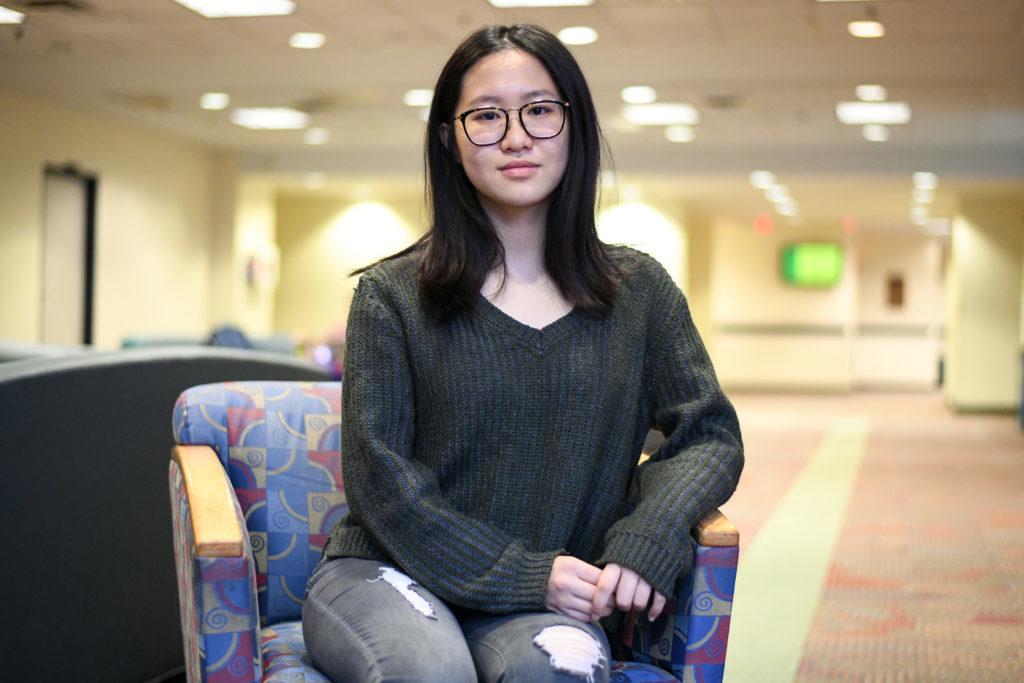International students say University-run Title IX trainings don’t go far enough in helping them overcome language and cultural barriers surrounding sexual violence.
Nine international students said in interviews that their Title IX training sessions did not include specific activities to address language and cultural discrepancies. They said that because they face unique challenges in understanding the terminology and expectations of sexual behavior in the U.S., Title IX trainings need to be more in-depth.
As the international student population at GW continues to grow, experts said the University should offer more specialized Title IX training to students from other countries who often face cultural barriers in understanding policies and language about unwanted sexual behavior.
All incoming students are required to complete sexual assault prevention training online and in-person. For the last two years, international students have attended a specialized training session at orientation that focuses on specific issues those students face, Title IX Coordinator Rory Muhammad said.
“These presentations begin with a discussion about cultural differences, and specifically the ways in which cultural differences can create barriers to reporting,” Muhammad said in an email. “We have received feedback from international students that the in-person training allows them more flexibility to ask questions about aspects of the program that they may not understand.”
He said the office collects feedback from students after their sessions and makes changes to the sessions “as appropriate.”
Vedika Arunachalam, a freshman and an international student from India, said she didn’t receive Title IX training that was really geared toward international students when she attended Colonial Inauguration in August.
“The training was basically just a slideshow,” Arunachalam said. “There were domestic students with us. I don’t recall them trying to say too much about the culture or how it’s a different culture here.”
Gary Wang, a junior and an international student from Taiwan, said the Title IX Office should provide additional training to explain the cultural differences that exist between the U.S. and the home country of each international student, like social cues and terminology about consent and hookup culture.
“There are cultural differences and a cultural gap and this creates a misunderstanding and misinterpretation,” he said. “With training in the U.S., there would be a clarification of what the cultural differences are.”
Kaajal Joshi, a junior and an international student from India, said it’s important to tailor Title IX training to the international student experience to ensure those students understand sexual assault policies and the rights they are entitled to in the U.S. because policies about legal action and the reporting process differ abroad.
“It’s really important for international students to undergo this kind of training, so that they know how not to conduct themselves, and so that they recognize if they are being behaved to in a certain matter, they recognize the intention behind it,” Joshi said.
Katelin Shen, a junior and an international student from Taiwan, said Title IX training should focus more on defining what sexual assault is, especially when its definition varies from country to country.
“We don’t have many of these concepts back home,” Shen said. “There’s not a hookup culture or a college party culture. It’s just a relatively new concept.”
Growing the international student population has been a major University priority in the past few years. This fall international enrollment stagnated after years of growth.
Jessica Lo, a freshman and an international student from Taiwan, said officials should make Title IX training more informative specifically for international students.
“Something more informative should definitely be tied into the training because a lot of the topics weren’t as explicit as they could make it,” Lo said. “If they were to put more statistics and facts out it would help everyone.”
Parth Tandon, a sophomore and an international student from India, said officials need to be more transparent in how they address issues of consent and assault and create an environment where students feel comfortable asking questions.
“The biggest problem that I faced as an international student coming to college was that things weren’t talked about openly,” Tandon said.
Title IX experts said more specialized training would be helpful for international students, as it would help them to clarify cultural differences and emphasize any policies that are U.S.-specific when it comes to reporting an incident of sexual violence.
Alec Rose, an attorney and certified criminal law specialist, said because there are varying policies and cultural nuances, international students may not be aware that they are either a survivor or perpetrator of sexual assault.
“Students from those countries may not necessarily realize that a comment, like complimenting somebody’s appearance, could be perceived as sexual harassment,” he said.
Rose said these Title IX training sessions should also make it clear to international students that they are allowed to report a case of sexual assault, something that many be as accepted in their home countries.
“There are many countries where there is a strong social stigma against coming forward as a victim of sexual assault,” he said. “Those students need to be made aware that in the United States, that the student who is the victim won’t be subjecting themselves to the same kind of stigma they may fear.”





